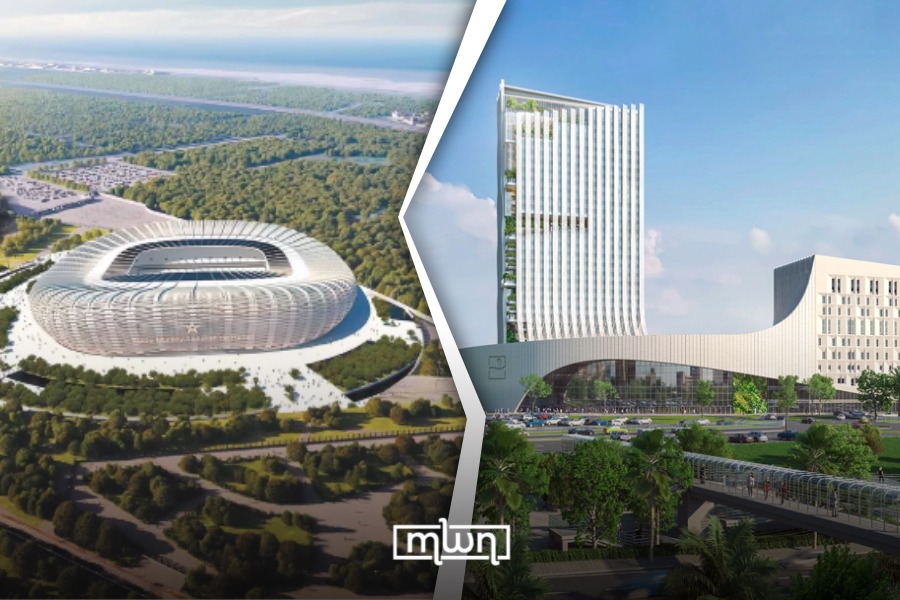Marrakech – According to sources close to the matter who spoke to Morocco World News (MWN), dozens of workers have been diverted from the construction site of Ibn Sina University Hospital to complete the Prince Moulay Abdellah Stadium in Rabat.
This controversial move comes in the final weeks before the kickoff of AFCON 2025 – scheduled to run from December 21, 2025, to January 18, 2026, in Morocco.
The sources told MWN that workers from the hospital construction project have been temporarily transferred, or “borrowed,” to accelerate efforts at the stadium, as officials race to meet deadlines promised by Fouzi Lekjaa, president of the Royal Moroccan Football Federation (FRMF).
The stadium is now scheduled for inauguration on September 5 with a World Cup 2026 qualifying match between Morocco and Niger.
The situation raises serious questions about national priorities. According to many observers, the key question is whether it is logical to prioritize a sports facility over a strategic healthcare project serving thousands of citizens.
Despite the symbolic importance of Prince Moulay Abdellah Stadium, which will host AFCON matches, including the opening and final phases, the urgency of its completion has sparked legitimate concerns. As many critics point out, is Morocco’s image as a successful organizer of sporting events being prioritized over basic rights such as healthcare?
The ‘two-speed Morocco’?
The Ibn Sina University Hospital, launched by King Mohammed VI in May 2022, is designed with a capacity exceeding 1,000 beds at a cost of around MAD 6 billion ($600 million).
The futuristic medical facility will include a 33-story hospitalization tower, a five-story medical-technical center, and will be equipped with 148 beds dedicated to intensive care units. The hospital was originally scheduled to be completed within 48 months and represents a crucial addition to the healthcare system in the Rabat-Salé-Kenitra region.
Meanwhile, the newly reconstructed Moulay Abdellah Stadium, with a capacity of nearly 68,500 seats, has been closed since 2023 for a complete overhaul.
The initial completion deadline set by Lekjaa for July 31 was not met, pushing the official opening to September 5. Similarly, the Grand Stadium of Tangier, initially promised for completion by August 15, has also faced delays.
The stadium has already received praise from international officials. FIFA President Gianni Infantino described it as “one of the most modern, efficient and magnificent jewels on the planet,” positioning Morocco “among the elite of world football.”
But according to multiple sources, this acclaim comes amid a healthcare system struggling under tremendous pressure, with overcrowded hospitals and severe shortages in infrastructure and equipment.
The Ibn Sina Hospital project is considered a top priority, yet the decision to reduce its workforce in favor of the stadium reflects, according to many observers, a painful contradiction between focusing on “appearance” and the basic needs of citizens.
In the end, this issue goes beyond mere logistical management between two construction sites. As critics maintain, it provokes a central dilemma: Is Morocco moving in a direction that effectively balances its basic development needs with its international image? Or are we still stuck in the logic of “two-speed Morocco,” where a stadium is completed in extra time while the opening of a desperately needed hospital is postponed?
